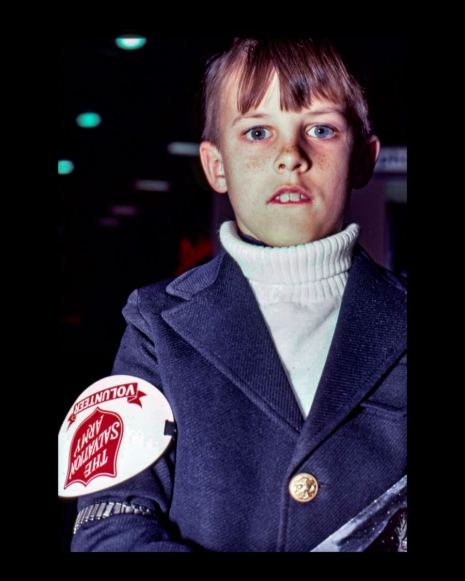
‘Wierdo.’
Scot Sothern grew up in a photographic studio. His old man photographed weddings and portraits. He told him: When you take a portrait of the bride you gotta see her with the same love the groom has for her. It was a lesson Sothern never forgot.
Sothern worked around the studio. He started in the dark room then ended up taking wedding photos. He was expected to take over the family business. Sothern wanted to be a writer or maybe an artist like Andy Warhol.
It was the late 1960s. A time of revolutions. Sexual, social and political. Sothern quit home in Springfield, Missouri and headed for Southern California looking for teenage dreams of sex ‘n’ drugs ‘n’ rock ‘n’ roll. He wasn’t making it as an artist. He wasn’t making it as a writer. Instead of giving up Sothern thought “fuck it, I’ll do whatever I want.” He started taking photographs. Kids making out at the skating rink. Working guys drinking at a bar. White working class people on the periphery. But no one was interested.
In the 1980s, Sothern documented the junkies, winos, and hookers. He followed his “hard-on.” He photographed his subjects with the same love a groom felt for his bride. He shot with a flashbulb or used sunlight. Nothing else. He showed his father his work. He liked the composition, the lighting, the power. The subject matter not so much. His brother thought he was “degenerate”. Sothern’s work said as much about his life as it did about the women and men he was photographing. He wrote the down their conversations. A short story of their lives. Still no one took an interest.
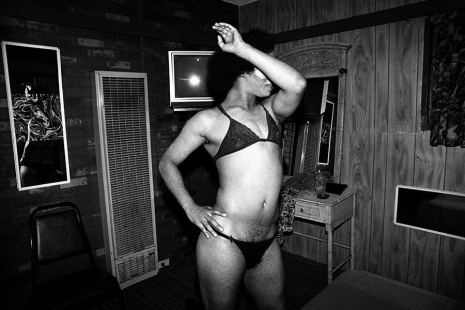
From ‘Low Life.’
1990: Sothern has motor bike accident. He stops taking photographs. He starts writing. But no one’s interested. He returned to photographing the people most politicians want to forget. The poor, homeless, and fucked-up.
It took 40-years for Sothern to get established. 40-years of rejection slips, and sorry this ain’t our kinda shit letters. In 2010, John Matkowsky at the drkrm Gallery in LA put on Sothern’s first solo show Lowlife. At the age of 60, Sothern had arrived.
Over the past decade, Sothern has exhibited across the USA and in Europe. He has published several books and launched a parallel career as a writer. This month, These Days will exhibit two major Sothern exhibitions under the title Generations: Sothern’s earliest personal photographs, Family Tree 1975-1980, and his most recent body of work, Identity both of which “explore time, change, and the multi-directional evolution of America.”
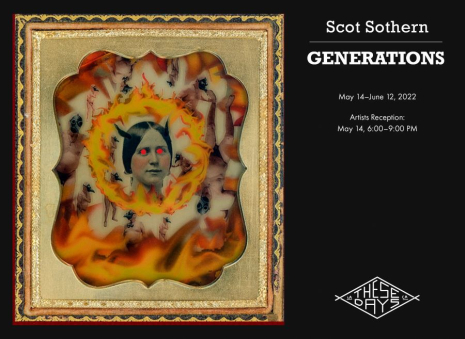
Tell me about your new exhibition ‘Generations’?
Scot Sothern: Well, Generations consists of two different bodies of works. The Family Tree photos were shot nearly fifty years ago and I think the original impetus was all about making my photography something more than portraits and snapshots. I was still in my twenties and mostly running wild, with little respect for the societal norms. I decided the best way to rationalize my lifestyle was to call myself an artist.
The other half of Generations, Identity, comes from looking for something new and wearing my politics on my sleeve. America has changed to a very different place since the Family Tree series, a lot the good of the Baby Boomer generation has decayed or was merely a delusion in the first place. A lot of things got fixed but in general America is fucked-up. I’m inspired by anger and I find I am inspired by younger generations of people who are reclaiming the identities that had been previously been kept in the closets.
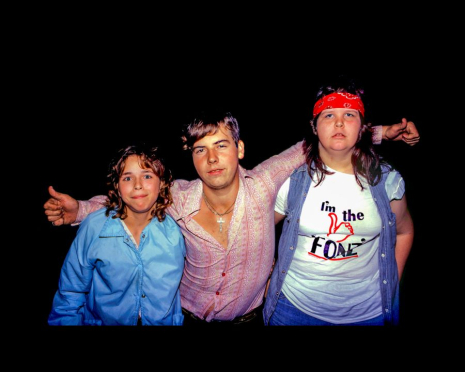
‘The Fonz.’
Have you found yourself examining your own past history and family roots?
Sothern: Absolutely, I think as I have aged (I’m 72) and acquired a bit of history myself, the past has become more important to me. I’d love to be one of those people who can say they look back with no regrets, but I look back at the years when I was kind of an asshole and didn’t have a good understanding of who I was and that’s maybe not a good thing. That said, I can also look back at some of the outrageous things I pulled off that weren’t necessarily legal and above board and, you know, I’m kind of proud of what I got away with. As to my family roots, I left home, the Missouri Ozarks, while still a teen, and headed for California. I hated the Ozarks, it just wasn’t for me. It was all God and Guns and Glory Fucking Halleluiah. Now, fifty years later and more at peace with myself I can look back, and I can go back for visits, but you know, I still hate the place.
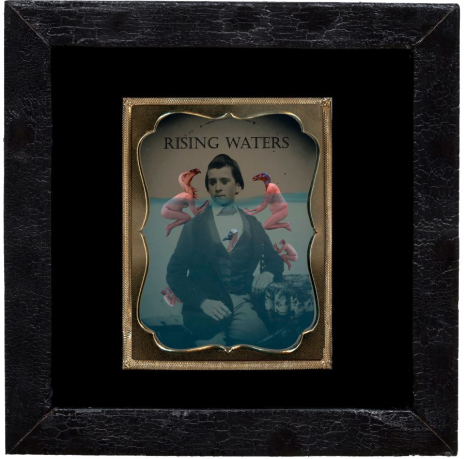
‘Rising Waters.’
What did you learn or discover about yourself from working on ‘Identity’?
Sothern: Identity has been such a pleasure to make. I’m not looking for late night adrenalin fixes in the places no one wants to go. I’m making the kind of art that people can actually hang on a living room wall. That’s not to say I’m making pretty pictures of blue skies and kitty cats but I’m also not doing portraits of naked Skid Row crack-addicted sex workers. As to what I have learned about myself in the process, I don’t know, it’s more a creative process than a self-awareness thing. There haven’t been any sudden moments of enlightenment. It’s just sitting at my desk doing something I love.
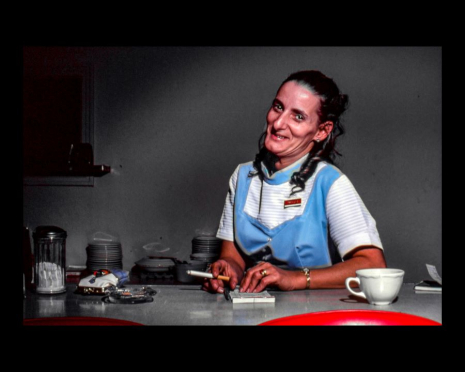
‘Phyllis.’
Do you think identity and identity politics have become the dominant forces in American politics? Is this good or bad?
Sothern: Yeah, identity politics has become a big political talking point in America. In a better world it would be matter-of-fact with no discussion necessary. People are what they are and shouldn’t have to hide that away or be penalized for their identity. There are so many truly important things we should be discussing in America but instead the right wing nuts want us to be angry with everyone outside of their tribes. Much of the Identity portion of the Generations exhibit is about acceptance. That doesn’t necessarily mean I’m all woke. I believe there are absolutely times when political correctness is valid, but there is a tendency to go overboard with it, which does nothing other than provide the far-right with ammunition.
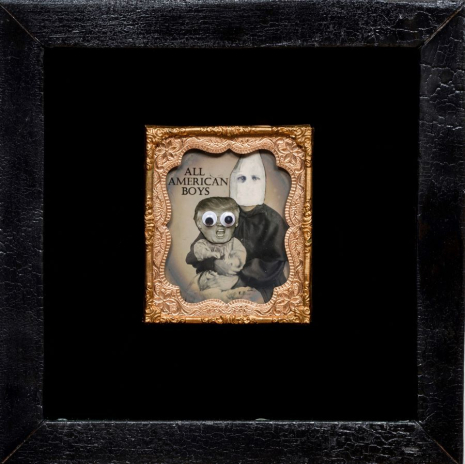
‘All American Boys.’
Have things evolved for the better or worse?
Sothern: Both. A lot of things we Baby Boomers thought we had fixed, like race relations, are still broken and some of us are just now realizing it. A hundred and fifty years ago, when the Identity ambrotypes were first made, the fight was the same as now. Little has changed. Still though, when I compare my youth with now, we do live in a more enlightened world.
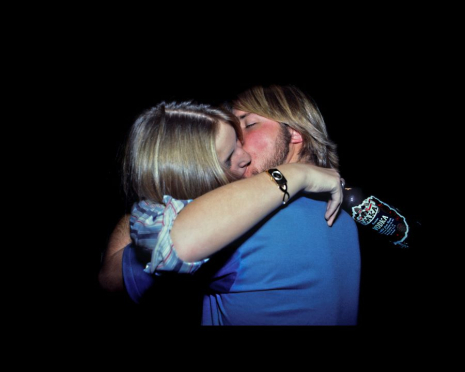
‘Knocked Up.’
What did you learn or discover from working on ‘Family Tree’?
Sothern: Taking pictures in the 1970s was a breeze. Strangers were happy to be photographed. They trusted me even though they didn’t know me or have a clue as to what I was going to do with the photographs. Nowadays no one trust anyone with a camera and everyone has a camera. I think maybe too many street photographers today are looking for the most shocking photo they can get; they want top those, like me, who came before. I think a lot of people feel these new photographers are making fun of them, and I think to some degree they are correct.
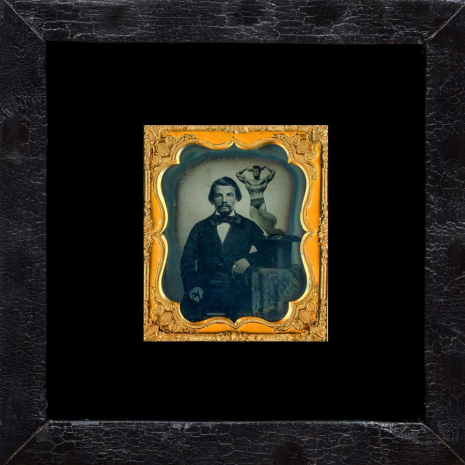
‘Forbidden Love.’
How has the family evolved or changed from your own perspective and in America over the past 50 years?
Sothern: I think when I left small town America for the big city in the late 1960s most people still stayed where they were and rarely moved more than a few miles from their families. Nowadays America is full of small towns that have become near-ghost towns. Work and manufacturing have moved to other cities or countries. There isn’t much to keep anyone at home. At the same time, everyone everywhere, is connected to the same network and where we live is less important to work and socialization than before. You can live a thousand miles away and still spend an hour a day on a Zoom call with someone you otherwise haven’t seen in years. I love my son who lives in Brooklyn and I miss him a lot but I think the idea of keeping families together is not really conducive to individual growth. The single smartest thing I ever did was leave home.
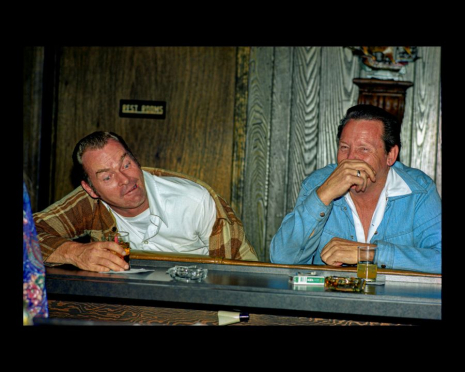
‘Elwin like to drink.’
What have you learnt from examining your own past life?
Sothern: As I’ve gotten older I’ve been able to reflect and realize how incredibly fucked-up I was and what it has taken to break free of that.
When did you take the first picture you were proud of?
Sothern: When I was a adolescent I went with a friend down to the railroad tracks and had him sit, with his dog, at the open boxcar door, his feet dangling over the side, and then made a silhouette photograph from inside the car looking out. I thought is was the coolest picture anyone had ever taken. The print, the negative, and the friend are all long gone.
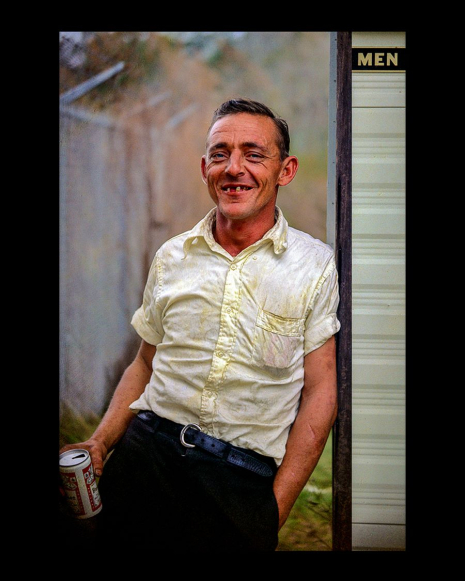
‘Vernon.’
What attracted you to photography?
Sothern: My father had a portrait and wedding studio in Springfield, Missouri, and I was groomed to take over the family business. I thought it was a pretty dumb business, taking baby pictures and weddings but I learned it by osmosis and I was pretty good at it. When I left home it was the only thing I knew how to do to make a living. I was in my twenties before I realized I could use photography to make a statement, which was the best thing to happen to me artistically and probably the worst thing commercially. I did what felt right at the time and I’m still doing it.
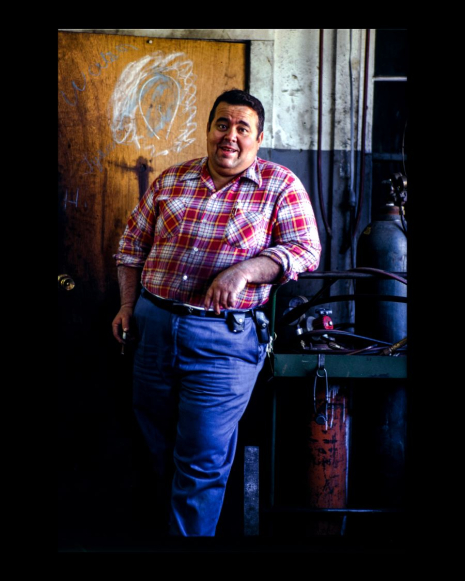
‘Leaky Radiator.’
What motivates, has motivated you in your career?
Sothern: That’s a hard question for me to answer. I’ve spent my whole life making pictures and writing books because it was what I needed to do. I’ve always wanted something more than money and security. It’s important for me to leave something of value behind for when I ’m gone. When I was a kid, my parents always said I had my head in the clouds and needed to face the reality of my limitations. They were right to some degree, I spent a lot of time fantasizing about the person I wished I could be. I guess I’ve spent the rest of my life becoming that person.
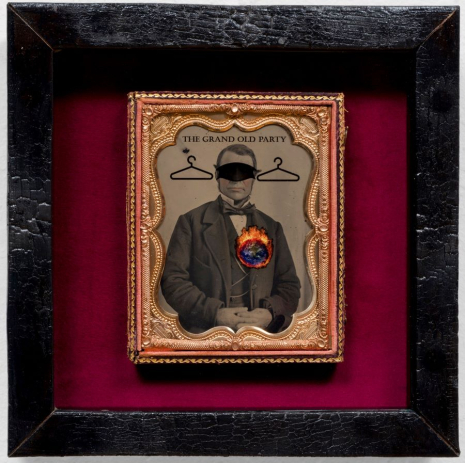
How has your view of the world changed since you first started? Are there core beliefs that have lasted? Or have you evolved and changed? And if so how?
Sothern: I don’t think my world view has changed all that much over the years. I was incredibly naive when I started out on my own and I purposely went to all the dark places to better understand the randomness of why we land where we do and the unfairness of it all. We live in a dark scary place but I’m not letting it rule who I am. My core beliefs have always been built on empathy and much as it hurts to carry that load, it’s a part of me that’s never going to change. Yes, I have absolutely evolved. There are still negative things in my past that I wish I could change but that’s just not going to happen and I can live with that.
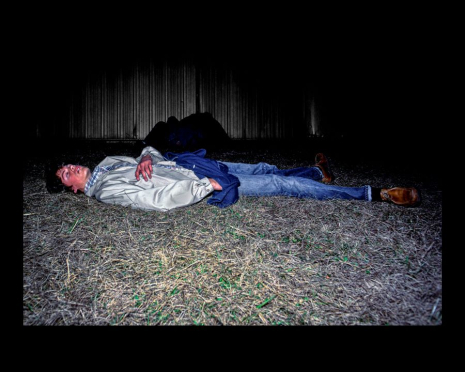
‘Curtis chugged half-a-pint.’
‘Generations’ by Scot Sothern exhibits at These Days, 118 Winston Street, Los Angeles from May 14 – June 12. Reception Saturday, May 14, 6:00–9:00 PM / no appointment necessary. Details here.
All images copyright Scot Sothern, used by kind permission.